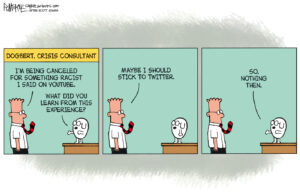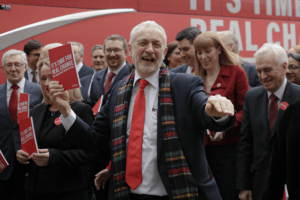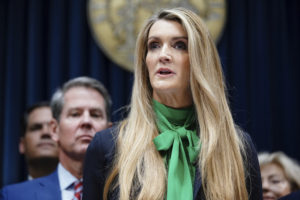The Wall Street-Health Care Connection
When I heard Senate Finance Committee Chairman Max Baucus, D-Mont., floating the idea of a tax on health benefits in order to raise revenue for health-care reform, I was baffled; how could this be?
By Mike ElkEditor’s note: This article was originally posted on AlterNet.
When I heard Senate Finance Committee Chairman Max Baucus, D-Mont., floating the idea of a tax on health benefits in order to raise revenue for health-care reform, I was baffled; how could this be?
Barack Obama’s victory in the presidential campaign was due, in part, to his promise to never tax health care benefits. And even as tax schemes on benefits for ordinary American workers gain traction in the Senate, many conservative House Democrats — the so-called Blue Dogs — balk at a tax increase on the country’s wealthiest citizens to help pay for a much-needed health care fix.
That puts conservative Democrats in line with the editorial board of the Wall Street Journal, which in a May editorial, embraced the tax on benefits for regular people (calling the exclusion of taxes of employer-based health care benefits “a huge money pot”), but just this week railed against the tax on the wealthy proposed in the current House bill.
On July 21, seven members of the Blue Dog Coalition forced House Energy and Commerce Committee Chairman Henry Waxman, D-Calif., to cancel debate and a vote on a health care bill already passed by two other House committees. The Blue Dogs cited their objections to the cost of the program, and Blue Dog spokesman Rep. Mike Ross, D-Ark., questioned the wisdom of taxing the wealthy to pay for it.
A June survey by Lake Research Partners for the Health Care for American Now coalition found that 80 percent of likely voters opposed a tax on health care benefits. Many health care advocates argue that taxing health care benefits could actually turn the country against the public health insurance option, which a Wall Street Journal poll shows shows that 76 percent of Americans support. If you tell people that to pay for that public option, you have to tax the benefits of those who have private insurance, that support would likely drop off a cliff.
Political concerns aside, there’s also the probability of unintended consequences if the health care benefits provided by employers are taxed — even if, as currently proposed, the tax would only kick in after a certain level of benefits.
Yet, despite the burden that would be felt by many regular people resulting from a cap on tax-excluded benefits, some conservative Democrats are upset about a proposed surtax on the wealthy included in the House bill as a revenue-generator for health care.
The legislation proposed by leaders of three House committees would set a 1 percent surtax on couples with more than $350,000 in annual income, with higher rates taking effect for those earning $500,000 and $1 million.
House Ways and Means Committee Chairman Charles Rangel, D-N.Y., said the surtax would raise $540 billion over the next decade, according to Bloomberg News. Still, Ross reportedly objects to the measure.
“I don’t like the idea of raising taxes in the worst economic crisis since World War II,” he told Politico. In response, House Speaker Nancy Pelosi, D-Calif., is reportedly floating the idea of setting the bar higher — adding the surtax to the incomes of only those who earn more than $1 million per year.
And that’s just one way to go. The Center for Tax Justice, a progressive think tank, laid out a variety of options [PDF] for paying for health care reform. One suggestion is a 1.45 percent Medicare tax on the capital gains and other non-wage income of millionaires — a measure that could raise billions of dollars.
“If the only income Paris Hilton gets is in capital gains, stock dividends, interest and other types of investment income, [then] currently she is completely exempt from the one big tax we have right now that is dedicated to health care,” said CTJ’s Steve Wamhoff when he released the proposal.
However, there is a lack of political will among those heavily subsidized by the financial-services industry to levy any kind of tax that could adversely affect the titans of Wall Street.
Some conservative Democrats have taken in sizable sums from Wall Street in campaign donations; Blue Dog leader Ross raked in nearly $900,000 from the financial-services industry in campaign contributions. Montana’s Sen. Max Baucus counts the securities-and-investment industry as the top sector from which he gleans campaign contributions, according to OpenSecrets.org; among his top five contributors are Goldman Sachs, AIG and KKR & Co.
Instead, friends of Wall Street have zeroed in on an easier target: labor unions. Some supporters of taxing health care are portraying unions as greedier than the actual greedy people they fight by talking about the high-quality health care they negotiate for members as having “gold-plated” benefits.
In reality, a tax on health care benefits would hurt people who work in small, non-union business far worse than it would union members.
A study by Elise Gould of the Economic Policy Institute shows that those most affected by taxing health care would small businesses and the people employed by them, since their health-care plans are often more costly per-employee than those of larger businesses. Businesses with an older workforce would also be adversely affected, Gould found.
The most perplexing aspect of conservative Democrats’ opposition to a health care reform bill that taxes the wealthiest but doesn’t tax benefits is political. With public support high for taxing the rich to pay for health care, it’s hard to imagine that even conservative Democrats would suffer at the polls for voting on a progressive plan. If Democrats instead choose to tax health care benefits, it could potentially derail health care reform. The political cost for failing to pass health care reform would be high.
Robert Creamer, political strategist and author of Stand Up Straight: How Progressives Can Win, writes, “History shows that swing-district Democrats have the most to lose if Congress fails to pass President Obama’s sweeping health care proposal.”
When I worked as a community organizer on Obama’s presidential campaign, I could swing some of the most ardent Republicans to vote for Obama by telling them that McCain would tax their health care.
I encountered NRA members who were more scared of McCain taxing their health care than of Obama taking away their guns. (Granted, McCain’s plan called for taxing all health-care benefits, not just those that exceeded a cap. But I doubt they would have been enthusiastic about a tax on especially good benefits.)
“If any of these Democratic senators vote for [a tax on health care benefits], they will be voted out in 2010, and this will definitely be used against Obama in 2012,” Vincent Panvini, the Sheet Metal Workers Union political director, told The Nation‘s William Greider. People are already hurting, unemployed — and then you are going to tax them more? That’s crazy.”
Your support matters…Independent journalism is under threat and overshadowed by heavily funded mainstream media.
You can help level the playing field. Become a member.
Your tax-deductible contribution keeps us digging beneath the headlines to give you thought-provoking, investigative reporting and analysis that unearths what's really happening- without compromise.
Give today to support our courageous, independent journalists.









You need to be a supporter to comment.
There are currently no responses to this article.
Be the first to respond.